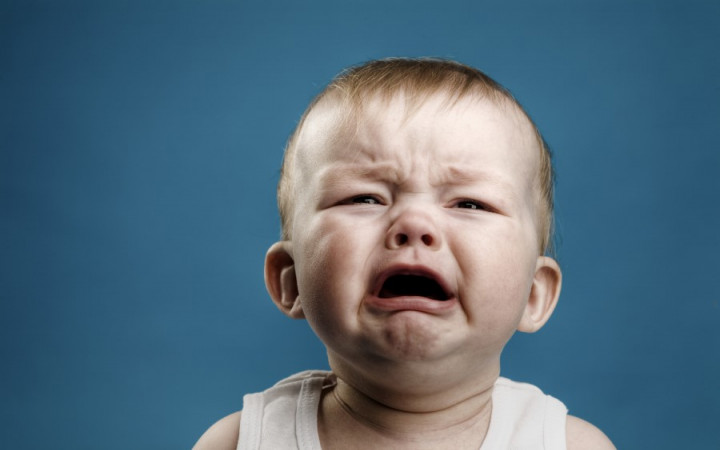Today’s Wonder of the Day was inspired by Kacey from AL. Kacey Wonders, “Why do babies cry?” Thanks for WONDERing with us, Kacey!
You're flying down the hill in front of your house on your brand-new skateboard. Everything is going fine until you try to negotiate that curve at the bottom of the hill. Before you know it…bam! You've lost your balance and hit the ground as your skateboard goes sailing off into the distance.
The pain of your scraped knee creates an agonizing, fiery feeling throughout your leg. Despite your best efforts to stop them, the tears begin to flow. Your best friend, who was trailing behind you, skates up and tries to distract you by chiding, “What's the matter, you big crybaby?"
The teasing works and you're soon back up and boarding, after you wash your skinned knee and apply a bandage to it. Later that day, you think back about the aftermath of your accident and your best friend's teasing. Were you really being a crybaby?
Not at all! Injuries hurt, and tears in such situations are natural. Crybaby, on the other hand, brings to mind the seemingly-endless crying of young infants. You begin to WONDER…why do babies cry so much anyway?
It's simply a fact of life. Babies cry. Babies cry a lot. They all do it. Some babies cry more than others, but they all cry as soon as they're born, and it can seem like many don't stop until a couple of years later!
A baby's cry is the primary means of communication from the moment of birth. Have you ever tried to have a conversation with a baby? Of course not! They can't talk and won't learn to speak for quite a while.
Despite their inability to speak, babies still have needs. They need food. They need sleep. They need affection and attention. They feel pain. They can experience fear. When needs arise and feelings occur, how are babies supposed to communicate them to you? They cry!
New parents know that it can be tricky to interpret a baby's cries at first. Over time, though, parents learn that babies cry in different ways at different times. Experienced parents soon learn to distinguish between an “I'm hungry" cry and an “I need my diaper changed" cry.
Babies may also cry for many other reasons. They might be overly tired. Sometimes they just want to be cuddled. At other times, they may feel pain from an upset stomach or need to burp. Or they could simply be trying to convey another message entirely, such as “I'm too hot in this blanket" or “I'm bored."
When babies cry excessively, they may have a condition known as colic. Doctors don't know for sure what causes colic, but they define the condition as intense, inconsolable crying for more than three hours a day, three days a week, for more than three weeks in an otherwise healthy baby.
Colic might start up as soon as just a few weeks after birth. Although treatments for colic aren't always very effective, the condition tends to improve significantly within three months or so. Those months can be very difficult for parents, though. Colicky babies are hard to comfort. A visit to the doctor can assure parents that the baby is healthy, and a doctor can also recommend measures to help parents provide as much comfort as possible to their crying infants.




